Public Health Wales 'scoping' Down's syndrome blood test
- Published
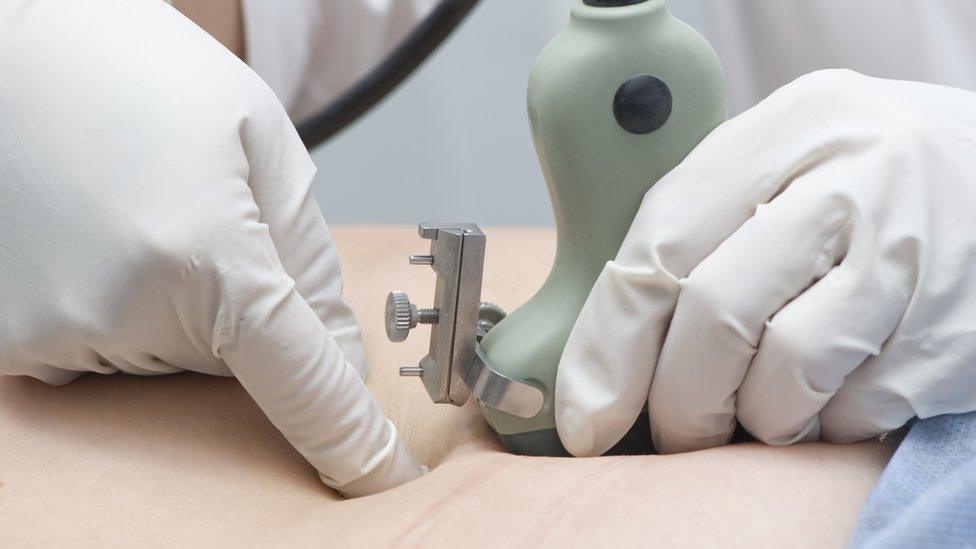
Amniocentesis increases the risk of having a miscarriage
Any plans to introduce a test for Down's syndrome within NHS maternity services in Wales need to be "carefully considered", a charity has said.
Public Health Wales (PHW) has confirmed a project has been set up to "scope" non-invasive prenatal testing (NIPT).
The Down's Syndrome Association in Wales stressed that, although the elective test could better inform pregnant women, it is not diagnostic.
The Welsh Government said it would make an announcement "in due course".
NIPT is considered a safer, more accurate test for Down's syndrome, which reduces the risk of miscarriage.
It will be rolled out in England from 2018 following a recommendation by the UK National Screening Committee.
Calls have previously been made for the NHS in Wales to fund the test.
Julian Hallett, from the Down's Syndrome Association in Wales, said that, in order for women to obtain a confirmed pre-natal diagnosis, they would still need to undergo an invasive procedure.
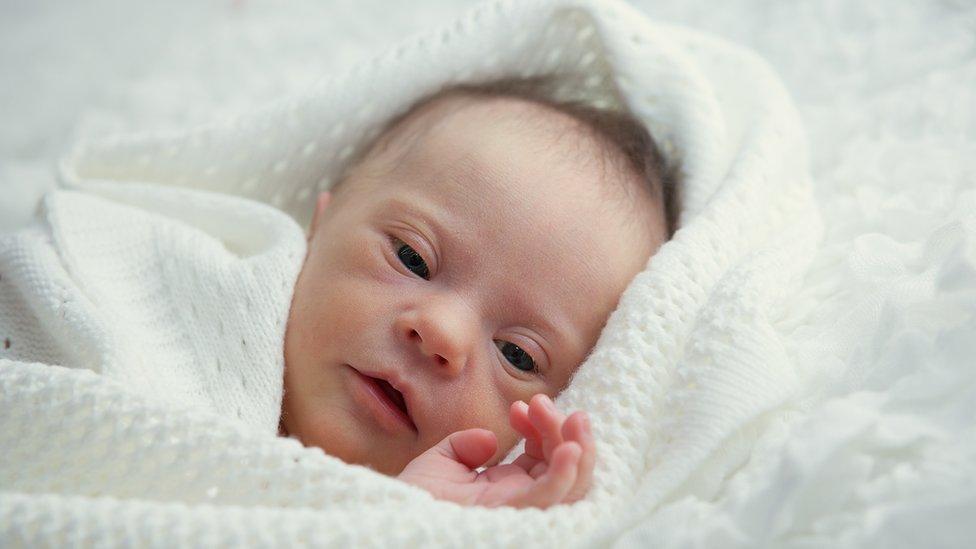
He said there should be no rush to implement NIPT in Wales until NHS staff were ready to support women and explain the new choices for screening.
"The fact England are going ahead and Wales hasn't as yet, I don't see as problematic," he said.
"In some ways, I think if Wales looked to see how it's implemented in England, we can then reflect on what has been learnt.
"The Welsh Government will need to look at how health boards across Wales collect samples, where they will be tested and, crucially, midwifes and screening coordinators will need to be trained about the system and have up-to-date, balanced and accurate information about the conditions being tested for."

What is NIPT?
One in every 200 women loses their baby after an amniocentesis, in which the fluid around the developing foetus is tested for genetic disorders
NIPT would instead test for fragments of foetal DNA, which reaches the mother's blood via the placenta
It is likely NIPT will only be offered to women who have already received a higher-chance result from a combined screening test, which is available on the NHS
The test is available privately in Wales

Mr Hallett also stressed the importance of health professionals, such as midwives and screening coordinators, being properly trained about the genetic condition.
"Those women who receive NIPT results will be placed in a position which may lead some to make a decision on whether they continue with their pregnancy. It's a life-changing decision," he said.
"Many parents report the information they get from health professionals is too negative.
"We want to be able to ensure they balance that by giving positive information about the condition and explain the increased opportunities for children and adults with Down's syndrome today."
'Rapid access'
He said it was also vital women have "rapid access" to appropriate counselling, so they can make an informed decision which is right for them.
Dr Sharon Hillier, acting director of PHW's screening division, said: "A project has been set up to scope and take this work forward for Wales, which has been led by Public Health Wales.
"The Wales Screening Committee recently considered options for the implementation of NIPT in Wales and advice for ministers is currently being prepared.
"The Welsh Government will make an announcement in due course and this will inform how this work will be taken forward in Wales."
- Published1 March 2017
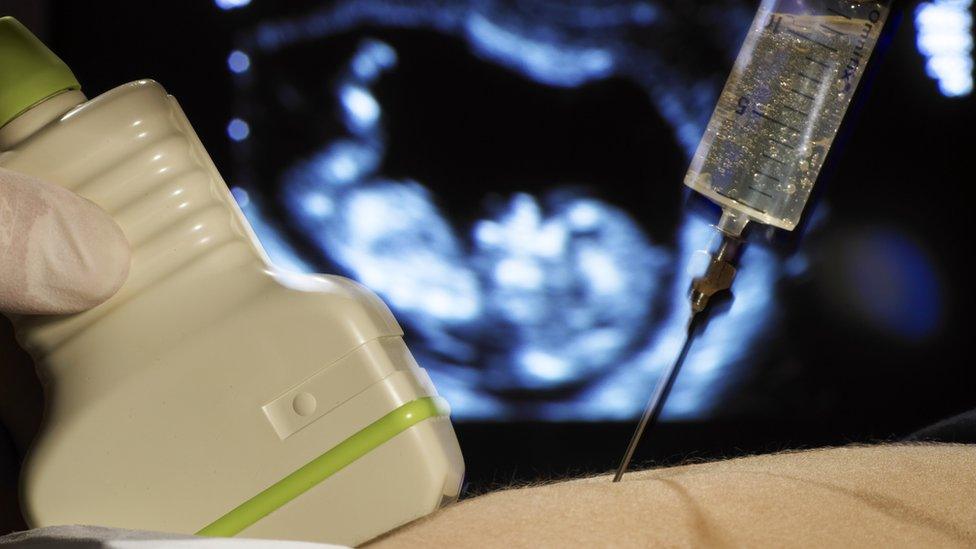
- Published7 June 2015

- Published31 October 2016
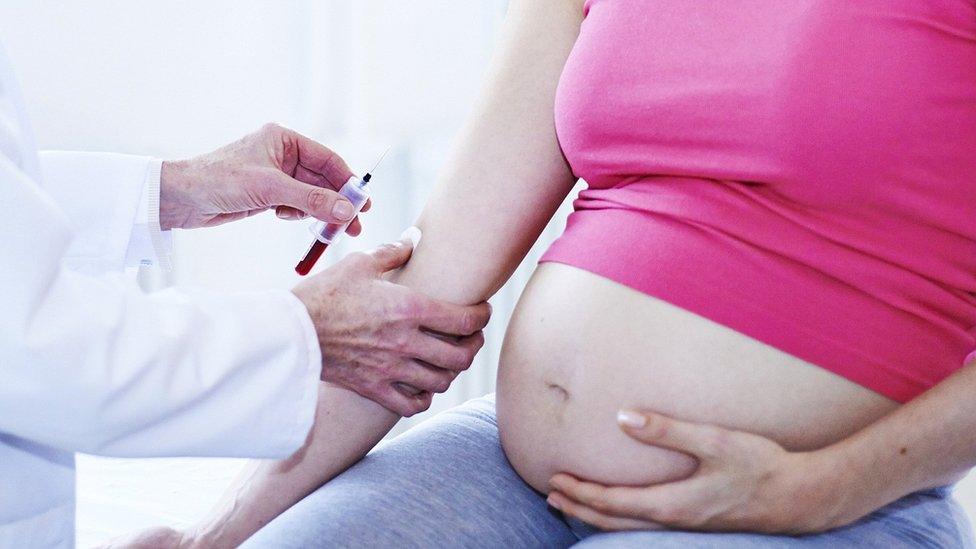
- Published29 September 2016

- Published6 June 2015
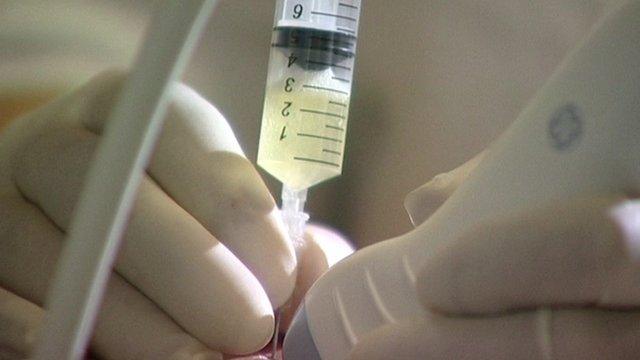
- Published1 April 2015
